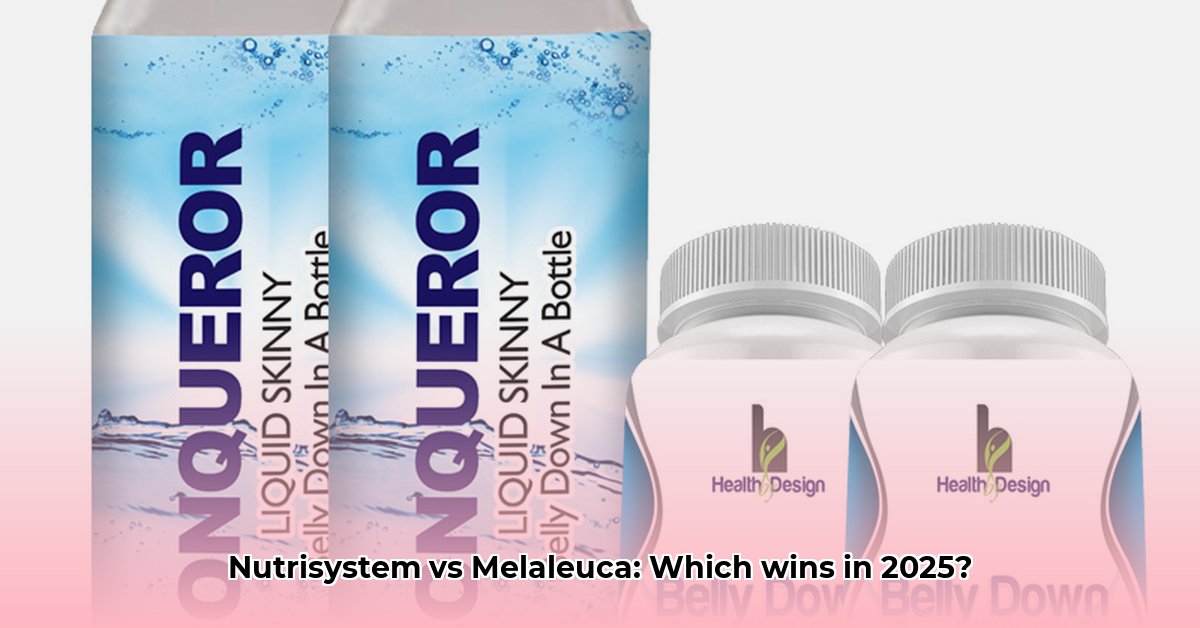
Choosing a weight loss program can be overwhelming. Nutrisystem and Melaleuca offer distinct approaches: Nutrisystem provides pre-packaged meals, while Melaleuca focuses on nutritional supplements. This review compares both, highlighting strengths and weaknesses to help you make an informed decision.
Nutrisystem: A Detailed Review
Nutrisystem's appeal lies in its convenience. Pre-portioned meals delivered to your door eliminate grocery shopping and meal preparation. Many users appreciate the structured approach, finding it simpler to stick to their weight loss goals. However, long-term effectiveness studies remain limited, suggesting individual results may vary. Taste preferences and long-term adherence are additional factors to consider. Will the meals stay appealing? Can you maintain the program long-term?
Nutrisystem Advantages:
- Unmatched Convenience: Streamlines meal planning and shopping, saving time and energy.
- Structured Approach: Provides a clear roadmap, reducing decision fatigue and promoting adherence.
- Generally Nutritionally Balanced: Meals aim for nutritional balance, though individual needs may necessitate adjustments.
Nutrisystem Considerations:
- Cost: Nutrisystem can be significantly more expensive than preparing meals at home.
- Customization Limitations: Meal options might not always cater to all dietary restrictions or preferences.
- Sustainability: Long-term weight management necessitates lifestyle changes beyond any program's duration. Weight regain is possible after discontinuation.
Melaleuca: A Supplement-Based Approach
Melaleuca's weight loss strategy centers on nutritional supplements. However, detailed information on their specific products is scarce, hindering a comprehensive comparison with Nutrisystem's meal-delivery approach. Without access to detailed product information and independent verification of claims, assessing their effectiveness remains challenging. Proceed with caution and conduct thorough independent research before using any Melaleuca weight-loss products.
Melaleuca's General Approach (Based on Limited Available Information):
- Supplement Focus: Relies primarily on supplements to potentially boost metabolism and aid weight management.
- Less Structure: Offers less dietary and exercise guidance compared to Nutrisystem's structured plan.
- Potential Interactions: Consult a doctor before using any supplement, especially if you're taking other medications, to avoid possible adverse interactions.
Nutrisystem vs. Melaleuca: A Direct Comparison
Due to the limited data on Melaleuca's weight loss products, this comparison offers a broad overview rather than a detailed analysis.
| Feature | Nutrisystem | Melaleuca |
|---|---|---|
| Primary Method | Pre-portioned meals, structured plan | Nutritional supplements, less structured |
| Convenience | Very High | Low (requires meal preparation) |
| Cost | Relatively High | Unknown (requires further research) |
| Support | Built-in support and tracking | Likely limited; requires self-tracking |
| Scientific Evidence | Some studies; long-term data limited | Insufficient publicly available data |
Choosing the Right Weight Loss Program
Selecting a weight loss program is highly personal. Nutrisystem's convenience and structured approach are appealing, though cost is a significant factor. Melaleuca offers a less defined path, with limited available data to assess its effectiveness. Always consult your doctor or a registered dietitian before starting any weight loss program. They can help you create a safe and effective plan tailored to your individual needs and health conditions. Remember, consistent effort and sustainable lifestyle changes are key to long-term weight management. Further independent research is strongly advised before committing to either program.
How to Effectively Compare Weight Loss Programs
Choosing a weight loss program requires careful consideration. This section clarifies how to effectively compare approaches like Nutrisystem and Melaleuca.
Key Comparison Points:
- Approach: Does the program provide pre-packaged meals (like Nutrisystem) or focus on supplements (like Melaleuca)?
- Cost: Evaluate the overall cost, considering both initial investment and long-term expenses.
- Convenience: Assess the level of convenience offered, considering time commitment and ease of use.
- Structure: Determine the level of structure and guidance provided, factoring in your personal needs and self-discipline.
- Scientific Backing: Research the available scientific evidence to support the program's claims. Consult reputable sources like the Mayo Clinic and Harvard Health Publishing.
Remember that sustainable weight loss is a holistic process requiring lifestyle changes, not just relying on a single product or program. Consulting a healthcare professional is crucial before making any commitment.